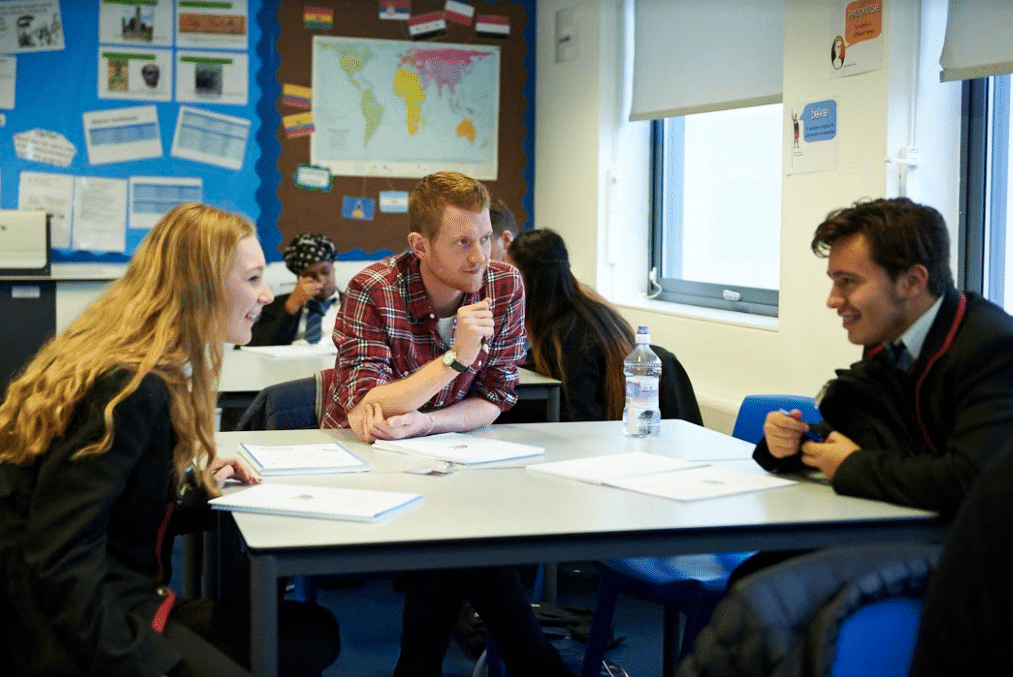How I get pupils reading
Richard Riggs is Head of English in a London boys’ school and has been teaching for 15 years. We asked him for his thoughts on how to get pupils reading for pleasure.
How to get pupils reading
I have lost count of the times that I have been told at parents’ evening that someone’s teenage son or daughter has stopped reading. If you look at the research on this topic you generally find two things: firstly, that children should not be forced to read – they should engage with it autonomously; secondly, that in most cases when children are given the choice to read they choose not to. Even enthusiastic younger readers tend to read substantially less by the time they reach their teenage years.
Reading is important for so many aspects of children’s development, not least empathy. In fact, this is my favourite quotation on the importance of reading:
‘I had a teacher I liked who used to say good fiction’s job was to comfort the disturbed and disturb the comfortable. I guess a big part of serious fiction’s purpose is to give the reader, who like all of us is sort of marooned in her own skull, to give her imaginative access to other selves. Since an ineluctable part of being a human self is suffering, part of what we humans come to art for is an experience of suffering, necessarily a vicarious experience, more like a sort of “generalization” of suffering. Does this make sense? We all suffer alone in the real world; true empathy’s impossible. But if a piece of fiction can allow us imaginatively to identify with a character’s pain, we might then also more easily conceive of others identifying with our own. This is nourishing, redemptive; we become less alone inside. It might just be that simple.’
David Foster Wallace, when asked in an interview
I often use this in my first lesson with a sixth form group, to try to get them to think about what reading might be for beyond ideas about exams or the literary canon.
At my school we have tried to engage with the dip in reading amongst teenagers by bringing in a certain amount of enforced reading. This is not necessarily in line with the research on the topic but if I, as Head of English, have to make a choice between teenagers reading or not reading then I feel it is my duty to push for the former to happen.
As such, we ask children to read at least one book every half term and in the holidays, including four novels over the summer; all of this is on top of the normal school work and whatever novel or play they might be studying in English. These books are class readers chosen by the teacher during term time; in the summer holidays the boys are allowed to choose four from a list of ten – one of which should be a classic like Wilkie Collins’s The Moonstone or Mary Elizabeth Braddon’s Lady Audley’s Secret.
What motivates teenagers to read?
We are fortunate to have the money to buy books (tragically, many schools do not, of course) and we have put a lot of effort into finding novels which we think will appeal to teenage boys. Whilst there are some modern novels which they enjoy (Jonathan Coe’s The Rotters’ Club, for example, or Andrea Levy’s Small Island) it’s interesting that some older writers still have a strong appeal, from Agatha Christie to John Le Carré. In fact, the mystery/detective genre and books in a series (such as Veronica Roth’s Divergent trilogy) are the things most likely to motivate teenagers to read.
You will find that some schools have a rather canonical approach to reading but my general belief is that if teenagers are reading at all you are winning the battle – regardless of what they are reading. Although I would love a class of 14-year-old boys to read Jane Eyre or Great Expectations (and sometimes they might), I’m very happy if they are enjoying Skippy Dies by Paul Murray or Life: An Exploded Diagram by Mal Peet.
If they take pleasure in those novels now, then there is a very good chance that they will go on to become adult readers, with books embedded in their lives.
Written by: Richard Riggs
Are you a primary or secondary school in England? 97% of schools would recommend Action Tutoring to another school. You can partner with us and our motivated tutors will help the disadvantaged pupils of your school by providing personalised and sustainable academic support. This way, pupils can learn to enjoy the process of learning and reading.
Do you have a passion for English and would like to help children from low-income households to improve their writing skills, read more and have better grades? Get involved today and make a difference.




